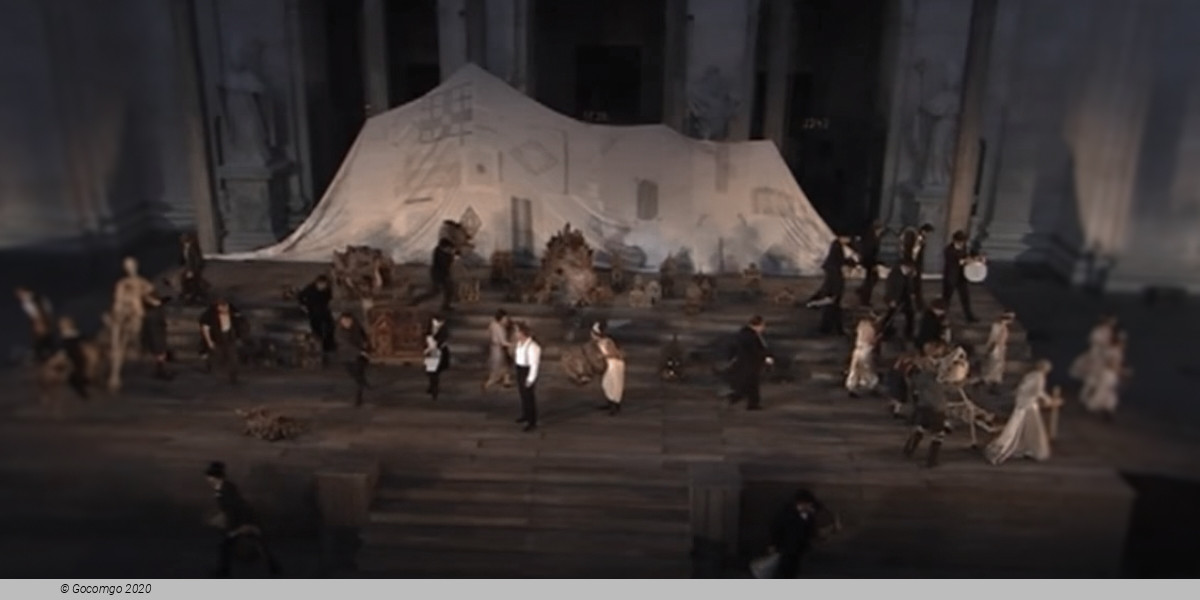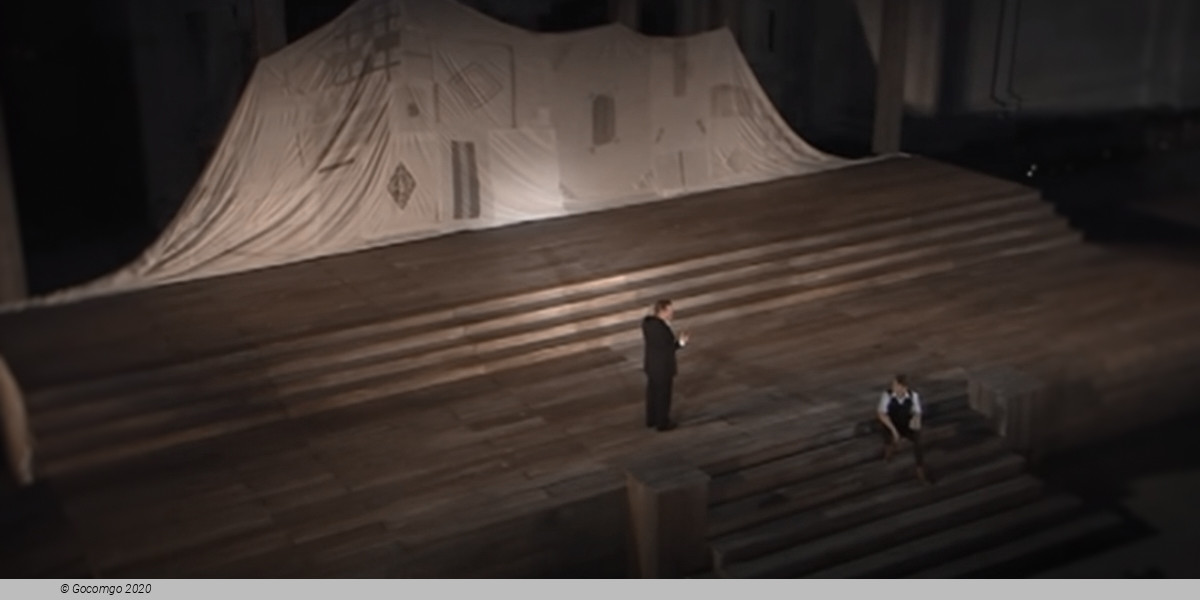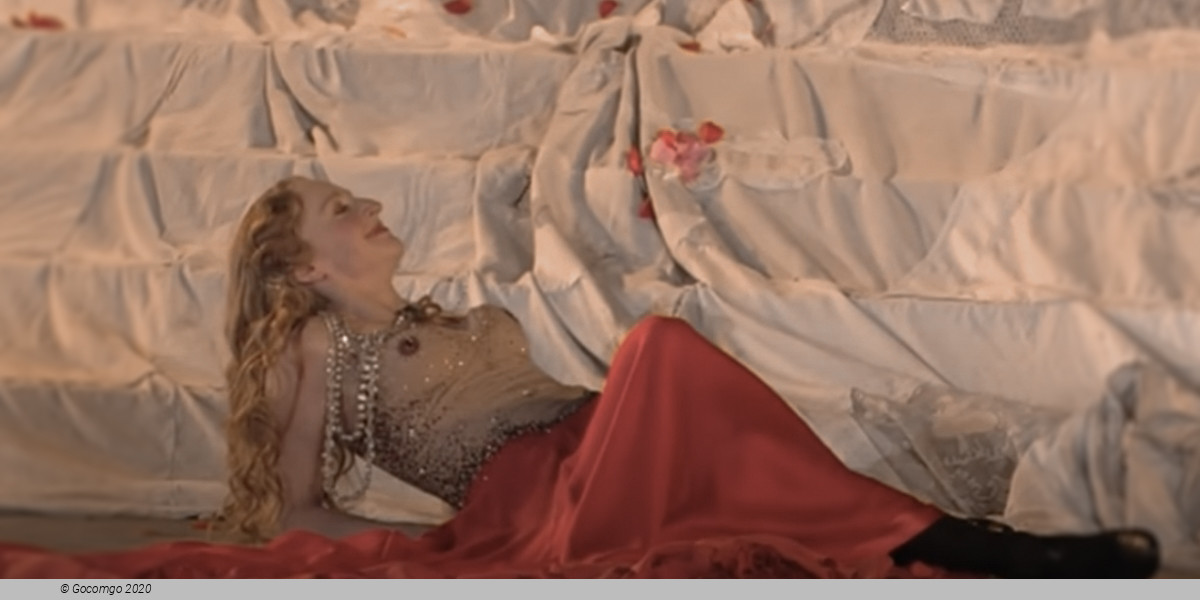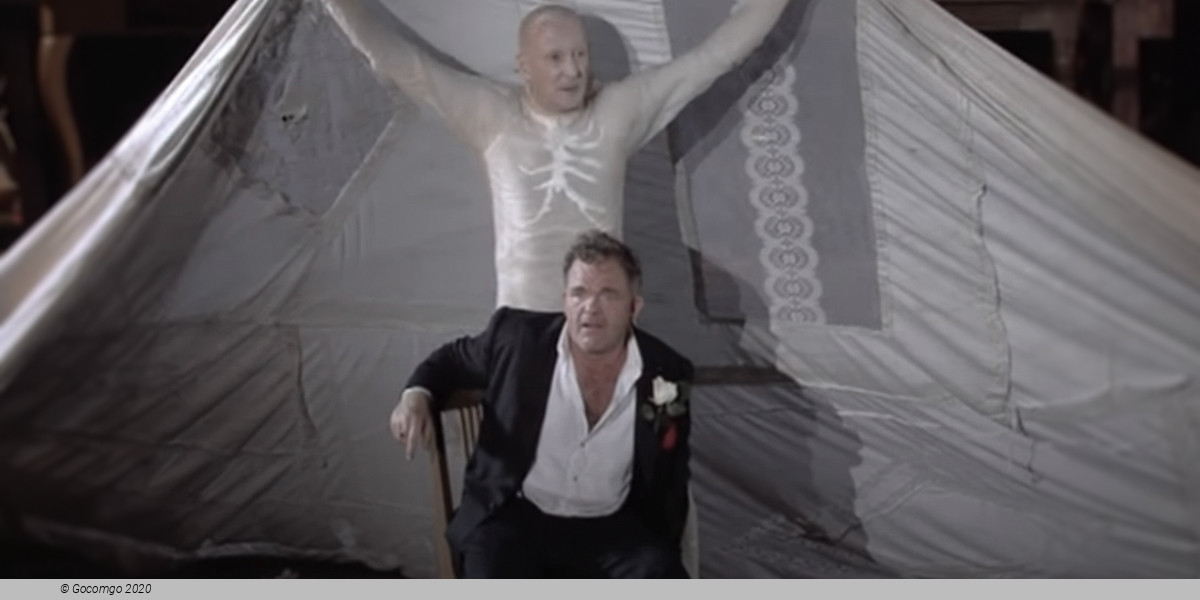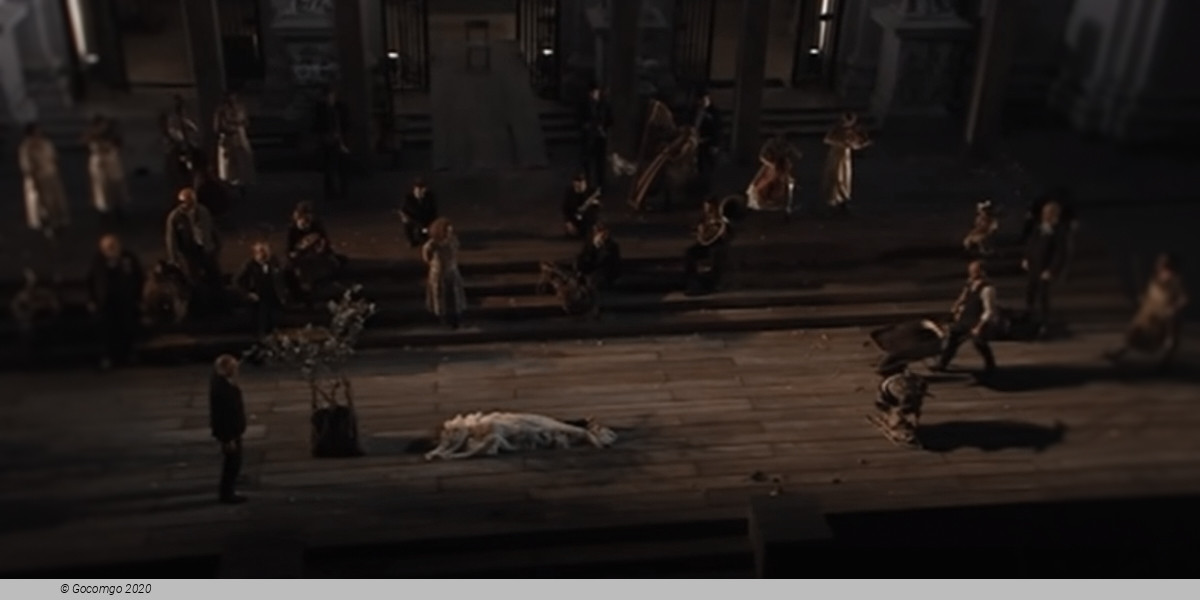After more than 700 performances in a century, Jedermann is a central component of the Salzburg Festival’s DNA and keeps on prolonging its own history, a unique occurrence in German-language theatre.
The drama was conceived as a renewal of the medieval morality play, modelled on the English Everyman and further enriched by Hans Sachs’s Hecastus and other sources. Its creator, Hofmannsthal, worked on his own rendering over a number of years in a Europe marked by escalating conflicts. He always had in mind a realization by Max Reinhardt. ‘Having persistently carried within me the essence of this dramatic structure over the passing years, at least in my subconscious, there gradually awoke the desire and the freedom to treat the material at my own discretion. Its actual core kept revealing itself ever more clearly as a human absolute, not affiliated with any particular time, not even indissolubly connected to Christian dogma; it is more that man’s unconditional yearning towards something higher, towards the very highest, must play a vitally facilitating part when all earthly bonds of loyalty and ownership prove illusory and transitory, and that is portrayed here in allegorical-dramatic form: and what is there that could be more important for us?’
The risk of treating the material freely and of resituating its theme to its quintessence with neither temporal nor doctrinal ties — as Hofmannsthal here explicitly describes his process — constitutes the ideological energy centre of Jedermann.
‘At its core, Jedermann poses this question: what happens when death enters our lives? In our culture, death is repressed more fully than ever before in human history. We try ever harder to barricade our selves from our mortality and to confront it as little as possible, but it’s clear to everyone nonetheless that one requirement for living life purposefully is to find a reflective approach to dealing with death. That is a basic element of living. At some point, all people must come to terms with death; no one can avoid this confrontation. The mystery that surrounds the enigma of any human’s death and of humanity’s encounter with death in general exists in every religion and culture. And humankind has been concerned with this topic ever since we began singing and writing and producing art and pictures.
‘Our production aims at a contemporary reading. We transport men and women into the present and attempt to move them with a story that has great relevance in all times. Aside from the style of the language, there are few hints as to time in Jedermann. Hofmannsthal’s language, which comes from the turn of the 20th century, constructs an artificial medieval setting — something classical, a recreation of a different style — which of course says a lot about its own time. With the character of Jedermann, which Hofmannsthal adapted to fit the rich man, he makes it specific to this individual. This is how his Jedermann becomes the “Play of the Rich Man’s Death”. And yet despite this distinction, Jedermann stands for everyone because everyone has to die, although Hofmannsthal’s Jedermann finds it especially difficult to let go of the world. This is underscored as the crux of the story. ‘Although Hofmannsthal writes in a medieval style, he remains anchored to a very different point in literary history. With Max Reinhardt he also had an extremely strong theatre practitioner at his side, who, like Stanislavsky at the same time in Russia, shaped the development of a new profession, that of the modern director.
‘When the play is performed on the Cathedral Square, a major element behind the success of Jedermann in Salzburg has to do with the direct juxtaposition of the theatre with the Church — an institution which also seeks to deal with the final realities of life — namely the confrontation between the spiritual and the profane. With his use of the Cathedral Square, Reinhardt found a place where he could stage a clash between these two poles and develop a striking display of theatricality.’
Michael Sturminger


